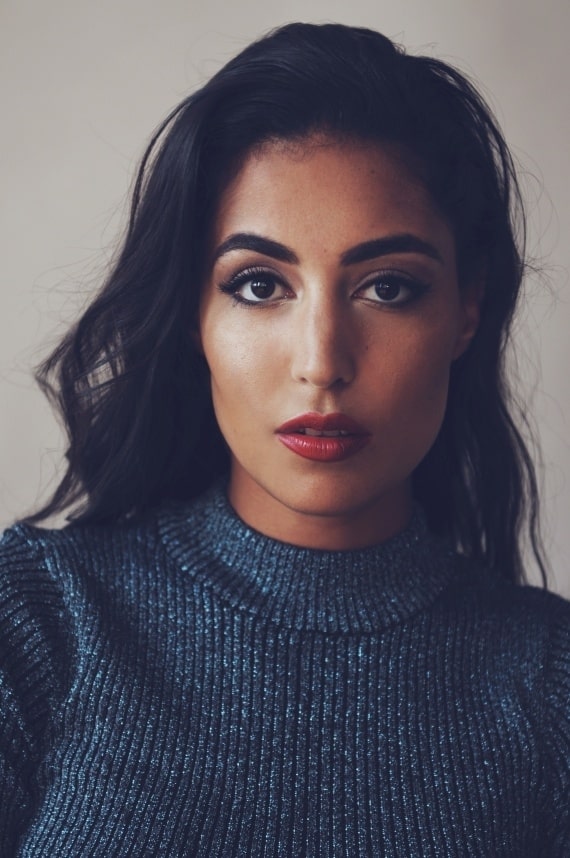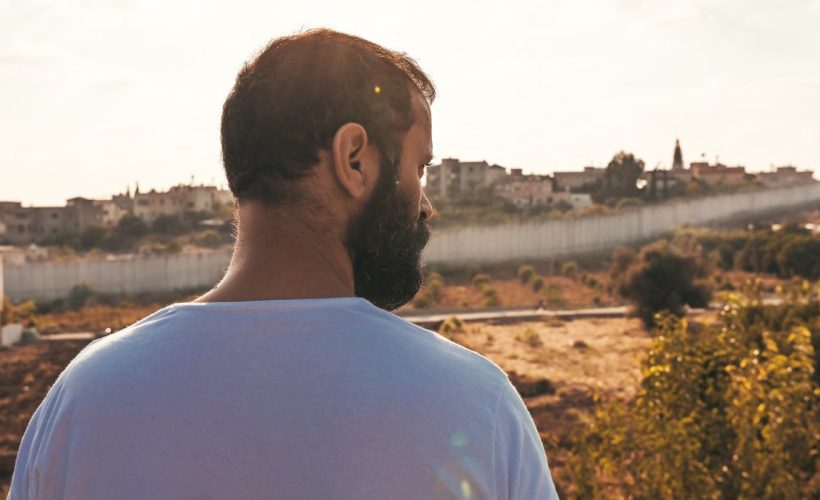Society
6.29.2020
Author Alya Mooro, or how to break stereotypes about women in the Middle East.

British journalist and author Alya Mooro has just published her first novel: The greater freedom, life as a middle eastern women outside the stereotypes. An autobiographical book in which she talks about her Egyptian origins, which also mixes the testimonies of other Arab women living with a double culture in Western societies.
More than a book about women in the Middle East, this first book is a personal initiatory story with universal accents that recalls the many diktats imposed on women in the contemporary global society. With nuance and emotion, Alya rightly evokes the clichés about Arab women in the West, those about Western women in the East, the prevailing sexism, but also the lack of diversity in today’s media.

image from instagram: @alyamooro
In your book, you attack stereotypes about Arab women on all fronts. The Western world, which sees them as necessarily submissive women, but also the Arab world, which sees every Western woman as a sexual object. Was it difficult to confirm certain stereotypes without taking sides?
It was very difficult because I didn’t want to say to the West “yes, you’re right”. And in the meantime, there is always a part of truth in some clichés. In both directions. In the end, I wanted to translate my personal experience as honestly as possible, even if it was very difficult to separate the part of stereotypes from reality. But the feedbacks I received following the publication of the book encouraged me a lot. Many women living in the Middle East or even in England with a double culture found themselves in what I was telling, even if others criticized what I showed of the Arab culture. But what I wanted to say was that we all live in a patriarchal world and that what affected my life as a woman, whether oriental or British, are the expectations that are placed on us and which can be found everywhere. It’s a very cross-cultural issue that I wanted to address.
How do you explain the mutual clichés that the West and the East have about each other’s cultures?
I think that people like to otherize. They think that problems exist far away from them and that it has nothing to do with them. It’s a way of removing yourself from accountability. Orientalism has been going on for too long that it became so natural for people who travel to the East to think that people are too different from them. Even though these borders that separate us from each other become less and less important because we live in a globalized world, where technology has spread and people travel much more than before. But some prejudices still persist because of fear I think. And in today’s world more than ever, we really need these kinds of conversations to realize that we have more in common than what sets us apart. At the end, we all fight for the same things.

Cover page of the novel The Greater Freedom by author Alya Mooro
In your novel, you also explain that the beauty diktats that women in the Middle East have to comply with are ultimately the same as in the West. How do you explain that?
In the Middle East there is a lot of plastic surgery and skin bleaching, as in many Asian countries. I think it has to do with the colonization and imperialism that lasted for years. Even when my grandfather was growing up in Egypt, at a time where the British were ruling the country, there was a sporting club which was allowed only for British citizens and forbidden to the Egyptians and, even though it was in their country. His dad, because he was a renowned surgeon, finally managed to get in, which caused great pride in the family. Yet they were very critical of the British presence in Egypt. To them, it was a message that they were worthy. I think this is the same thing that is going on with the desire of looking like Westerners. It is a way for the colonized to feel acknowledged, accepted and considered attractive by Western standards. The beauty criterias in today’s world are still very western with the spread of technology.
Do you think diversity and representations are better in the media today?
I think it’s getting better and better, and representations start to be more realistic. At the same time, they are still very limited. For example in advertising, even though we see more and more mixed couples, the man is usually black, the woman is white, and their child will always have a particular kind of mixed races. Lastly, the NBA champion Kobe Bryant passed the way and the BBC made a montage with a picture of James LeBron instead. How come that no one in the newsroom realized that there were two different black men? This is why we need that decision makers and people who are in those newsrooms to be more diverse also.
popular

